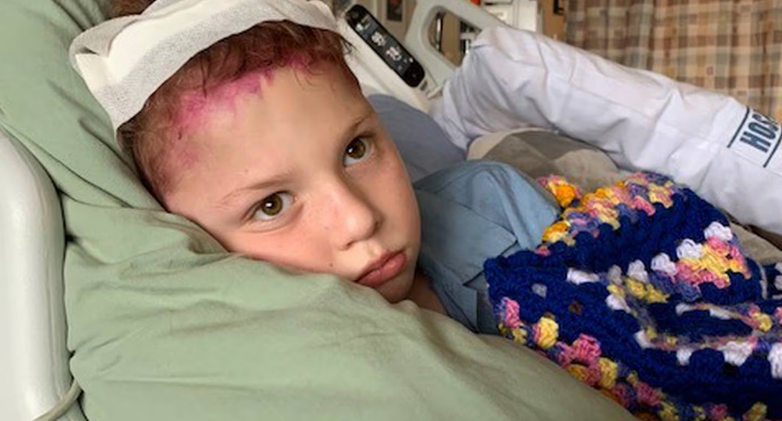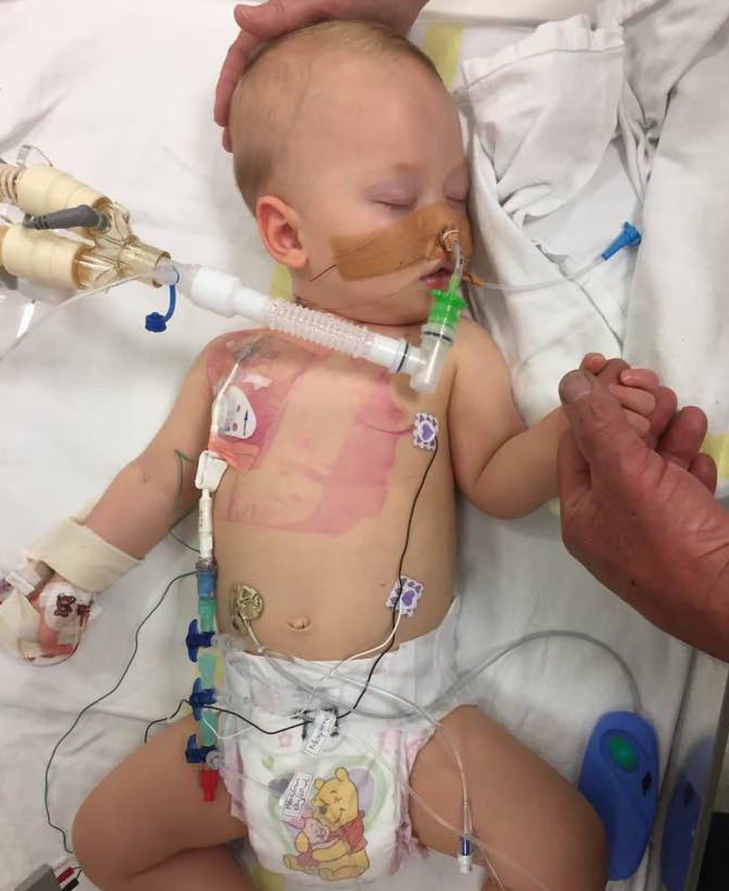
Jai Anstis, 7, had surgery at Auckland’s Starship hospital on February 12 in an attempt to reduce the severity of the hundreds of “horrific” seizures he had daily.
His mother, Jaimie Bowers-Anstis, said the operation - a corpus callosotomy - would sever the fibre bands joining the left and right sides of the brain.
“They’ll then work as separate entities. The corpus callosum is our information carrier from the left to the right brain, so if big seizures can’t travel the whole brain, then they’re generally less severe.”
She said she was told at Jai’s pre-surgical consultation he would spend two to three weeks post-surgery at a children’s rehabilitation facility on Auckland’s North Shore.
After the operation, Bowers-Anstis said she was told Jai did not qualify for a place at the facility because he did not have “ill effects” from the surgery.
“After the years of him having this crippling disability, it would have been nice for him to have been able to have the option of going into a really good rehab facility, even if it was just for a week, to work on his strength and mobility and balance and coordination,” she told the Bay of Plenty Times.

However, Health NZ/Te Whatu Ora says potential post-operation treatment options are often discussed with whānau before surgery, but final plans can only be confirmed once the child’s condition is assessed after surgery.
Jai was born in Te Awamutu and was a happy and healthy baby. But at 9 months old, he contracted the herpes simplex virus. Instead of getting a cold sore, the virus went into his brain. While at the hospital he also contracted encephalitis - a brain inflammation.
He has a severe brain injury, developmental delays, Lennox-Gastaut syndrome and refractory epilepsy - seizures that are not controlled with medications.
Jai is also autistic, non-verbal, has a vision impairment and has struggled with balance for “years” due to his seizures.
Bowers-Anstis said Jai’s condition was “pretty rough” for three days post-surgery, when he experienced nausea, pain, and vomiting.
He had since “bounced back” and was “smiling and walking around again”, but became tired quickly.
“He was fortunate enough to not have any neurological defects from splitting his brain. It’s been really successful so far.”
However, she said about “four or five” days after surgery, the family were told he would not qualify for a place at the Wilson Centre.
The centre provides intensive rehabilitation services for children up to the age of 16, including those with acquired neurological injuries who could participate in a rehabilitation programme.
“He’s too good to go,” Bowers-Anstis said.
“It did make Mike [her husband] and I a little angry when they told us.”
Bowers-Anstis said, in her view, it seemed anyone not in “super-critical” condition could not access rehabilitation at the Wilson Centre.
In her opinion: “We just do not have enough facilities for the kids in our country.”
Instead, Jai’s rehabilitation had been “passed over” to Jai’s school - Tauranga Special School - because it had a physiotherapist and occupational therapists on-site.
While they were lucky the school had specialists, she said she had not been able to find any “specific physiotherapists” who helped brain-injured children in the Bay of Plenty.
Bowers-Anstis said the family also planned to pay for private rehabilitation in Tauranga. They would not know the impact of the surgery on his seizures for three to four months as his brain needed to heal.

Health NZ responds
A statement from Health NZ/Te Whatu Ora said a child’s journey with a neurological brain condition could be “complex” and each required unique care and support.
“Child-centred care is our goal at all times and different options are explored with families when planning for their child’s specific healthcare needs.”
For children with particularly rare and complex neurological issues, a range of services and multidisciplinary clinical teams worked closely with whānau to find the best available care option, the statement said.
This included local support from paediatricians, occupational therapists and physiotherapists depending on their needs.
Families also had access to paediatric dieticians, speech and language therapists, audiologists and clinical psychology.
“While potential post-op treatment options are often discussed with whānau before their child has surgery, it isn’t until the child’s condition is assessed post-surgery that a final treatment plan, including timeframes, can be confirmed.
“Some children do not need intensive rehabilitation and are not referred to the Wilson Centre national Children’s Rehabilitation Service for this reason.”
The statement said they were better supported by their local care services, whom they already had an established relationship with closer to home.
This was often the case for children with a long-term disability, the statement said.
“We regularly connect with whānau to update them on progress and potential next steps for their child’s ongoing care. As always, we encourage families to talk to us directly if they have any questions or concerns about the care of their loved one.”
Tauranga Special School was approached for comment.











